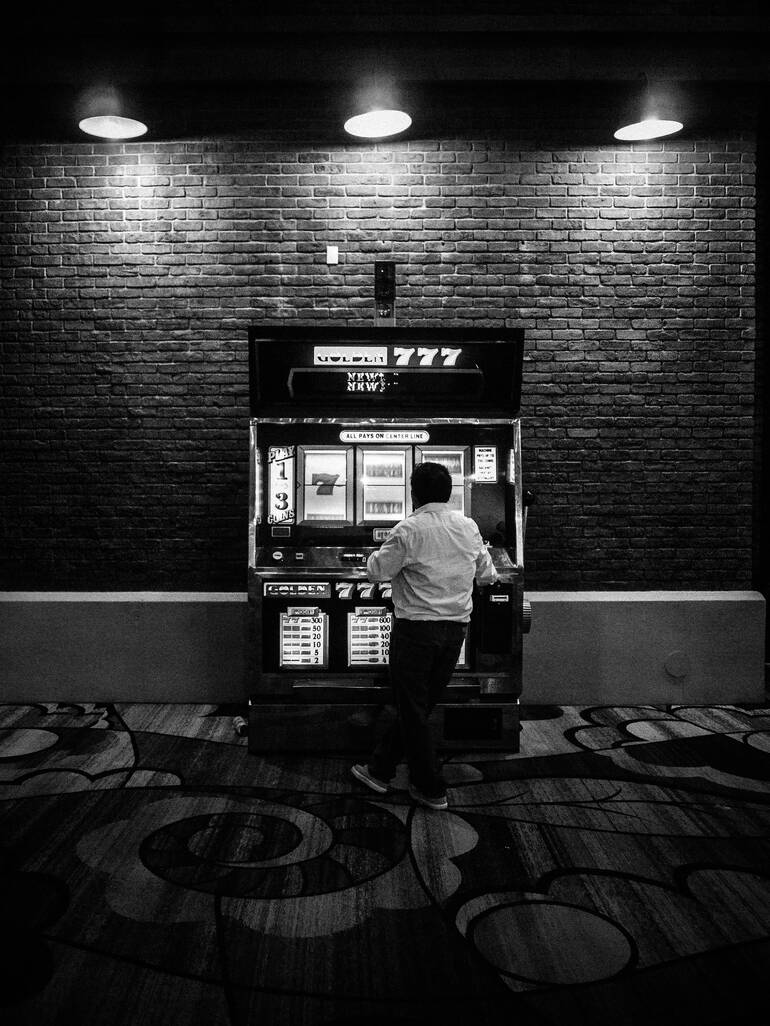Start 14-Day Trial Subscription
*No credit card required

The History and Origins of Pub Slots
It is safe to say that online slot games are some of the most popular and engaging online casino games ever made. They have come a long way since they were created and distributed across pubs and restaurants across the world.
Easily recognizable by their flashing lights and spinning reels, land-based slot machines don’t offer the benefits of their modern online counterparts. Slots bonuses as they are known today are not available on slot machines found at land-based casinos, pubs, and restaurants.
These simple yet highly entertaining games seem to have become popular overnight. In reality, slot machines have been around as early as the 1800s. These days players can access hundreds if not thousands of online slot games that come with a plethora of in-game features. They have developed along the way and include a number of innovative features to keep players entertained.
Let’s go through the thrilling history of slot machines and how they have evolved over the years.
The Invention of the First Slot Machine
You will be surprised to learn that a mechanic from San Francisco going by the name of Charles Augustus Fey was the inventor of the first mechanical slot machine. We say ‘mechanical’ as slot machines were already in existence back then. The key difference was that it required an attendant in order to payout winners.
Fey proceeded to modify these existing models to enable them to pay the winner out directly in coins. This all took place between 1887 and 1895.
Some years later, Fey went on to open his slot machine workshop where he invented his first slot machine. This slot machine was called ‘The Liberty Bell’. It came with three reels and was the first one-armed bandit of its time.
This slot machine also used 5 symbols, namely diamonds, hearts, spades, a liberty bell as well as horseshoes.
Sadly, Fey did not patent his design and his invention was widely replicated by other manufacturers.
Development of slot machines in the 20th century
By 1902, these slot machines were so popular that they were officially banned throughout the US. Even though all this was happening, manufacturers did not stop from building more slot machines.
Due to the illegalities in place, operators were unable to give cash prizes to winners, so instead, they introduced fruit symbols, leading to a new era of fruit machines. These machines would pay players various sweets instead of cash in a bid to bend the rules.
By 1907, the first Operator Bell slot had been invented finding itself in various shops and salons across the US. These machines hold historical value since they also came with the famous BAR symbol, which is still prevalent in slot games today.
Once prohibition ended during the 1930s, the slot machine market exploded leading to widespread expansion. During this time the first casinos in Las Vegas started opening their doors. This is where slot games really took off and became popular amongst punters.
For several decades, slot machines stayed essentially the same, with models being mechanics. Players would pull a level in order to spin the reels of the game.
Bally Technologies and Slot Machine Development
Eventually, slot machine development advanced from a simple mechanical machine to an electro-mechanical device. This was created by Bally Technologies in 1963. Although the company was formerly limited to manufacturing pinball machines, it released its first slot machine called Money Honey.
The slot machine was significantly improved. This included better gameplay, flashing lights, sounds, and other electrical components including multi-coin bets.
In the 1970s, Ball introduced more reels and other coin-handling improvements, which resulted in the creation of larger jackpots.
These advancements were further boosted in the 1980s with the introduction of computer microchips. These led to a massive step in slot machine technological advances that eventually led to the development of online slots and progressive jackpot slots.
By 2003, a linked slot machine with a shared jackpot reached a massive $40 million before it was won.
With the arrival of the internet and faster computers, it allowed for the first electromechanical slot machines to include features such as multiple paylines and bonus games which are prevalent in today’s online slots.
The first video slot machine came with two screens in 1994. The second screen was provided to allow players to access the bonuses.
The first online casino site was launched in 1995. This was followed by the emergence of a fast-increasing number of online casinos, threatening the livelihood of brick and mortar casinos. The competition in the US between land casinos and their online counterparts was so big, that the US Senate passed the Unlawful Internet Gaming Enforcement Act, which banned wire money transactions to and from online gambling sites.
By 2013, some governments within the state of Illinois allowed restaurants and bars to offer slot machines. By this time, online casinos and sportsbook sites were rampant across the world, but not quite in the US.
It has only been in recent years that some states have legalized gambling. Even so, not all casino games or sports betting is permitted. It is still unlawful in some states to gamble online. Players who reside in states where online gambling is not allowed are risking penalties and possible jail time.
Slot Machines in Pubs and Online
With an increasing number of US states passing laws and regulations recognizing online gambling, slot machines are likely to gain traction with most US players.
Players will be able to spot an increasing number of slot machines in public spaces in the US, including airports and bars. A research study carried out in the city of Chicago concluded that if they installed slot machines on location, it would lead to a whopping 37 million dollars in revenue for the local government.
More and more local municipalities are increasingly considering this idea in order to boost the gambling industry as well as revenues.



